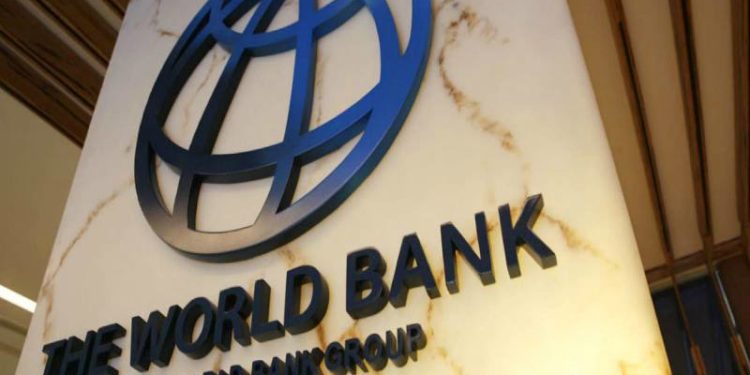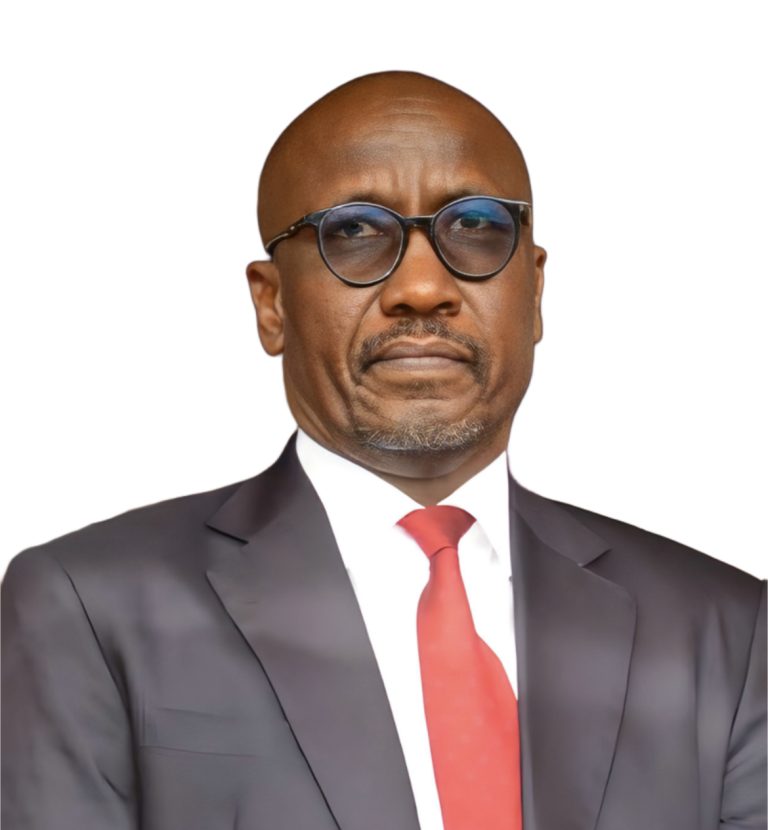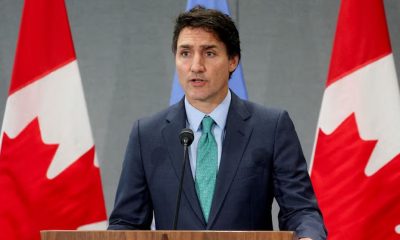Business
World Bank to restructure $200m project in Nigeria

World Bank to restructure $200m project in Nigeria
The World Bank has announced plans to restructure the Innovation Development and Effectiveness in the Acquisition of Skills (IDEAS) Project in Nigeria.
The $200 million project has faced challenges in meeting its objectives and will undergo significant changes to improve its effectiveness.
The project was approved on February 18, 2020, to enhance the capacity of the Nigerian skills development system to produce relevant skills for the formal and informal sectors.
It was learnt that out of the $200 million, only about $34.88 million has been released by the World Bank.
Due to the poor performance of the project, the World Bank has not released more funds, which are tied to meeting certain project criteria.
The IDEAS project, which aimed at enhancing skills acquisition in Nigeria, has shown limited progress in several key areas over the past two years.
Component 1 of the project focusing on providing grants to federal and state colleges, was particularly affected, with unsatisfactory ratings due to incomplete workshop renovations and delayed equipment procurement. Component 2 for the training of master crafts persons and apprentices also recorded slow progress.
The report read: “The Mid-Term Review (MTR) mission for the Project took place between October 3-28, 2023. The mission held meetings with the Federal Ministry of Education (FME), the six participating states (Abia, Benue, Edo, Ekiti, Gombe and Kano) and the selected federal and state technical colleges (TCs).
“The mission assessed the reasons for which the project has not performed as envisaged and identified adjustments and changes in project design, implementation arrangements, and resource allocations so that the project could remain relevant, be implemented effectively, and contribute to the country’s goal to produce skilled manpower for the formal and the informal sector.
“The progress towards the project development objectives and overall implementation progress has remained slow for about two years with limited progress on each component.
Business
Costs of calls, data to go up, FG confirms

Costs of calls, data to go up, FG confirms
Users of telecommunication services in Nigeria will pay higher costs as the Federal Government has agreed to the demand of industry operators for a tariff hike.
But the hike will be below the 100 per cent increase requested by service providers, the government has said.
Minister of Communications, Innovation, and Digital Economy, Bosun Tijani, disclosed this during an industry stakeholders forum in Abuja on Wednesday.
“The essence of this gathering is recognizing the critical role the telecom sector plays in driving Nigeria’s economic development,” Tijani said.
“Tariff will go up. That’s the verdict. But it won’t be by 100%.
“We need to ensure that as a sector, we put the right regulations in place that can ensure the growth of this sector, continue to contribute to job creation, but also enable other key sectors in the country as well.”
This implies that prices of calls, data and SMS will go up for the average Nigerian.
Executive Vice Chairman, Nigerian Telecommunications commission (NCC), Aminu Maida, also said that tariff adjustments would be accompanied by measures to simplify billing systems and increase transparency.
He said, “We’ve revised our quality of service regulations, bringing the entire value chain into scope for compliance, from MNOs to tower codes and transmission companies.
“So when we do see these tariff modifications, it’s also going to come with simplification.
“So every MNO or every service provider must comply with a simplified template; to show Nigerians what you are charging per minute, per voice, per SMS, and per megabyte of data.”
Business
I rose from Almajiri to CEO of NNPC, says Mele Kyari on 60th birthday

I rose from Almajiri to CEO of NNPC, says Mele Kyari on 60th birthday
Group Chief Executive Officer (GCEO) of the Nigerian National Petroleum Company (NNPC) Limited, Mele Kyari, has spoken about how he rose from being an Almajiri pupil to become the head of “Africa’s largest energy company”.
This reflection on his life’s journey is contained in a statement he shared to celebrate his 60th birthday.
Born January 8, 1965 in Maiduguri, Borno State, Kyari is a geologist and known in the oil industry as a crude oil marketer. He assumed office on July 7, 2019 as NNPC boss.
“Allah, by his grace, spared my life to this exceptional day, making it my 60th year from birth, even much earlier on the Hijri calendar,” he said in a post on X.
“I am profoundly grateful to my country for giving me the opportunity to grow from an Almajiri (Tsangaya) school pupil to become the CEO of Africa’s largest energy company.”
Kyari also thanked President Bola Tinubu and ex-president Muhammadu Buhari for the opportunity to head the NNPC.
“Even more particular, I deeply appreciate the exceptional privilege given to me by Presidents Muhammadu Buhari and Bola Ahmed Tinubu to serve as the last GMD of the NNPC and the pioneer CEO of the NNPC Ltd,” he added.
“Reflecting backwards alone can’t account for the profoundly eventful life I spent to this date, walking through good and bad times, travails and triumphs, pains and happiness, fails and successes and many more that only the sufficiency of Allah will explain.
“At this milestone, I feel the obligation to serve with even greater conviction and with elevated expectation of eternal recompense so deeply pleasing.
“I am hugely indebted to my family for being nearly absent for most of my later years serving our nation and the common good.
“My deep appreciation to my family, friends and associates, my colleagues at work and my teachers (western and of Almajiri extractions), and many unmentioned people who account for many of my accomplishments, unconditional support and my overall wellbeing.”
Business
Oil prices surge over supply disruption

Oil prices surge over supply disruption
Oil prices reversed early declines yesterday, induced by concerns of tighter Russian and Iranian supply in the face of escalating Western sanctions.
Brent crude futures advanced 60 cents, or 0.79 per cent.
It sold for $76.90 a barrel while U.S. West Texas Intermediate (WTI) crude was up 50 cents, or 0.68 per cent. It sold for $74.06.
The Federal Government’s oil price benchmark in the 2025 budget estimates is $75 per barrel.
It seems market participants have started to price in some small supply disruption risks on Iranian crude exports to China, said UBS analyst Giovanni Staunovo.
Concern over sanctions tightening supply has translated into increased demand for Middle Eastern oil, reflected in a rise in Saudi Arabia’s February oil prices to Asia, the first such increase in three months.
READ ALSO:
- 46 kidnapped in Zamfara as gunmen attack Gana town
- Six soldiers killed, 34 terrorists eliminated in Borno troops, ISWAP clash
- ICPC slams El-Rufai’s ex-aide with money laundering charges
In China, Shandong Port Group on Monday issued a notice banning United States-sanctioned oil vessels from its network of ports, three traders said, potentially restricting blacklisted vessels from major energy terminals on China’s east coast. Shandong Port Group oversees large ports on China’s east coast, including Qingdao, Rizhao and Yantai, which are major terminals for importing sanctioned oil.
Meanwhile, cold weather in the U.S. and Europe has boosted heating oil demand, though oil price gains were capped by global economic data. Euro zone inflation accelerated in December, an unwelcome but expected blip that is unlikely to derail further interest rate cuts from the European Central Bank.
“Higher inflation in Germany raised suggestions that the ECB may not be able to cut rates as fast as hoped across the eurozone,” said Panmure Liberum analyst Ashley Kelty.
Technical indicators for oil futures are now in overbought territory and sellers are keen to step in again to take advantage of the strength, tempering additional price advances, said Harry Tchilinguirian, Head of Research at Onyx Capital Group.
Market participants are awaiting more data this week, including the U.S. December non-farm payrolls report on Friday, for clues on U.S. interest rate policy and the oil demand outlook.
Oil prices surge over supply disruption
-

 metro3 days ago
metro3 days agoUpdated: Nigerians worry over Wike’s look after poisoning alarm
-

 Education3 days ago
Education3 days agoUNILORIN introduces courier service for collection of certificates
-

 Education3 days ago
Education3 days agoWAEC announces resit exams for candidates from Jan/Feb 2025
-

 News2 days ago
News2 days agoReactions as Mahama calls Tinubu ‘president of Ghana’ during inaugural speech
-

 metro3 days ago
metro3 days agoDistribution of CNG buses tears NANS leaders apart
-

 International3 days ago
International3 days agoCanada’s Prime Minister, Trudeau, resigns
-

 metro1 day ago
metro1 day agoPrison officer sentenced for engaging in sexual activity with inmate
-

 Education2 days ago
Education2 days agoPoly graduates protest proposed exclusion from NYSC







